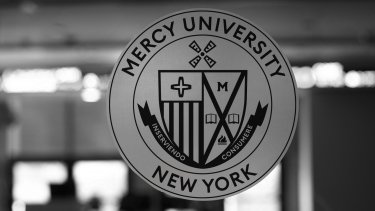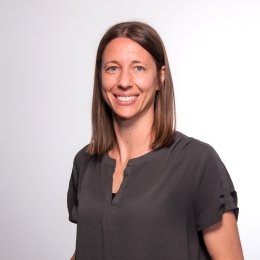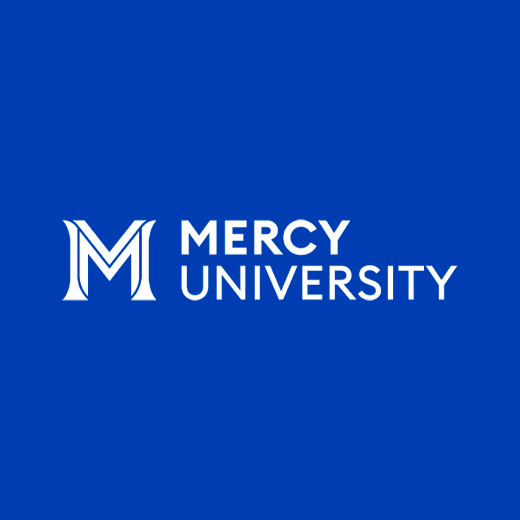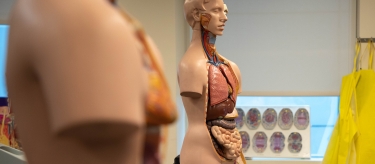
Health Science: Pre-Occupational Therapy
- 120 Credits
- School of Health and Natural Sciences
- Westchester
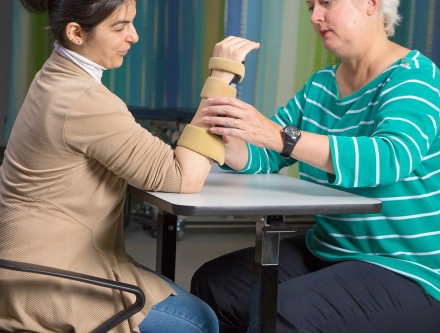
Health Science: Pre-Occupational Therapy Overview
Build a strong foundation in the sciences. Preparing students to apply to the Mercy University graduate program in Occupational Therapy. The Bachelor of Science in Health Science with a concentration in Pre-Occupational Therapy, offers a comprehensive curriculum grounded in scientific principles and its practical application to prepare students for application to a graduate occupational therapy program. The diverse curriculum that includes general education requirements, the foundational sciences and psychology courses that are typically prerequisites for application to a graduate program in occupational therapy.
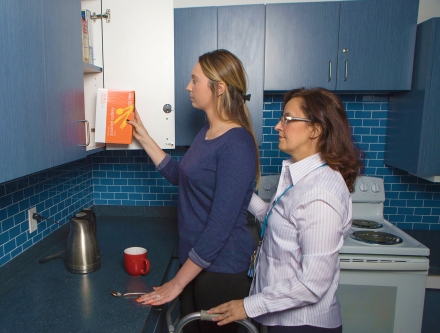
What is an OT?
Occupational therapists work with people experiencing daily living problems that may result from the effects of normal aging, disability or illnesses such as stroke, spinal cord injuries, cancer, autism, cerebral palsy or developmental problems, congenital conditions, and mental illness. Occupational therapists work in a wide range of practice settings including hospitals, rehabilitation centers, nursing facilities, home health agencies, outpatient rehabilitation programs, psychiatric facilities, private and public schools, community centers and private practices. There are expanding opportunities for occupational therapists in the areas of health promotion and prevention within private practices, industry, social and public or community agencies.
Pathway to the Occupational Therapy Graduate Program at Mercy
The B.S. in Health Science does not provide eligibility for licensure to practice as an occupational therapist. The health science degree is awarded after completion of the 120-credits of coursework detailed in the pre-OT concentration. Completing the health science program does not guarantee admission to a Mercy University graduate program in occupational therapy. Graduates of the B.S. in Health Science must apply to the graduate programs, meet specific requirements, and compete with all other applicants. Mercy University B.S. in Health Science graduates are offered an admission interview for the respective graduate program provided they meet the minimum criteria as outlined by the program.
Want More Info?
We'd like to hear from you! Get more information.
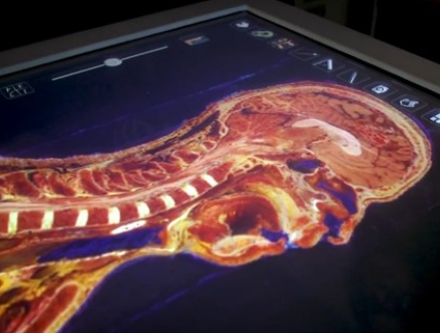
Learning Through Virtual Dissection
Students have the benefit of learning human anatomy on one of the Anatomage tables at either the Bronx or Dobbs Ferry campuses. This virtual format supports the knowledge of our future health care professionals. Hear from students about their experience.
Frequently Asked Questions
Very. You can take classes as a part-time or full-time student, at various times including evenings and weekends.
Full-time students can complete the 120-credit degree program in four years.
A wide-range of areas such as licensed rehabilitation professions, environmental and occupational health, public health or health promotion. Graduates may also pursue careers related to health care and health promotion in various public and private, clinical and non-clinical settings.
Yes. Acceptance of transfer credits is determined by Admissions. They consult with any graduate program to which you intend to apply. To be eligible for a B.S. in Health Science, which is a 120-credit degree, students must complete a minimum of 30 undergraduate credits at Mercy University. Mercy may transfer up to 90 undergraduate credits from a four-year college and up to 75 credits from a two-year community college.
Yes, faculty are always ready to help students with questions about what courses to take, the sequencing of courses, and career opportunities, including internships and cooperative education.
If an employer requires a college degree with a health care focus, a B.S. in Health Science is usually preferred. A B.S. in Health Science is the most effective route to completing a Bachelor's degree that includes all the graduate program prerequisite courses for programs such as the Health Promotions Concentration as well as the Graduate Occupational Therapy, Doctor of Physical Therapy and Physician Assistant Programs.
Program Details & Curriculum
General Education Requirements: 60 Credits
Major Concentration: 54 Credits
Open Electives: 6 Credits
Total: 120 Credits
Students who have selected a pre-occupational therapy professional concentration must maintain a minimum cumulative and major GPA of 3.0 to maintain matriculation within the pre-professional concentrations. If a student’s cumulative and/or major GPA falls below a 3.0, they will be placed on pre-professional concentration probation and will have one semester to restore their matriculating concentration status by raising their cumulative and/or major GPA to a 3.0. Pre-professional concentration students must achieve a grade of B or better in ENGL 112 or equivalent and MATH 116, MATH 201 or equivalent. Any student who receives a grade below a C in a major course will be required to retake the course. Major courses may be retaken once.
Download a copy of the sequence map for:
ARCHIVE
Contact the Health Sciences-Pre-OT Program
Dr. Jean Walsh
Assistant Professor
Program Director, Health Science
jwalsh5@mercy.edu
(718) 678-8325
Genesis Camarda
Administrative Assistant, Biology
gcamarda@mercy.edu
(914) 674-7550
Full-Time Faculty
Amanda Marie Bireline
- MH Penthouse
- abireline@mercy.edu
- (914) 674-7135
Erin-Leigh Gallop
- BX 3237
- egallop@mercy.edu
- (718) 678-8827
Jean Marie Walsh
- BX 3237
- jwalsh5@mercy.edu
- (718) 678-8325
Ferdinand A Esser
- Main Hall, Room 215
- fesser@mercy.edu
- (914) 674-7857
Part-Time Faculty
Jennifer Martins Alves Fernandes
Christina A Locario
Joi Sampson
- Main Hall - 247A
- jsampson4@mercy.edu
- (914) 888-5243

